Rhubarb and Strawberry Jam
This no fuss rhubarb and strawberry jam is easy to make, requires no pectin, uses honey in place of sugar and is wonderfully sweet and tart.
It can be enjoyed on toast or scones, it makes a delicious crumble for dessert, and is equally sublime when dolloped over ice cream.
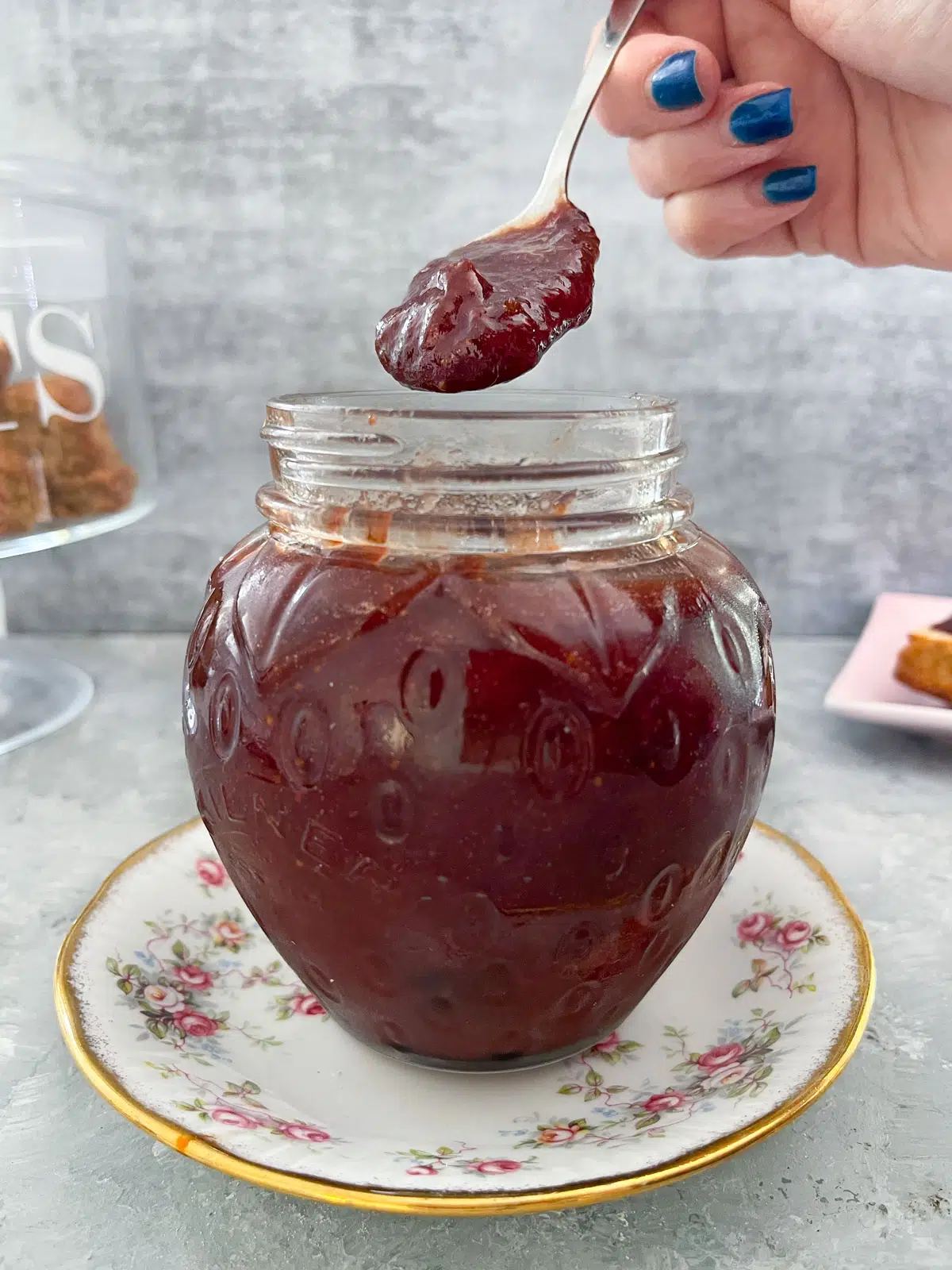
In This Article
Rhubarb – A Forgotten Vegetable?
I often think rhubarb is one of those foods that people have lost the skill and interest to cook, much like quince really. Ask our older generations and they will tell you all of the delicious things they or their Mothers/Grandmothers used to make with rhubarb. Now it always looks sad and lonely on the greengrocer’s shelves with few people stopping by to pick it up.
I really hope I can encourage you to take it home with you and cook it with this recipe. It’s delicious!
Rhubarb, while used as a fruit, is really a vegetable. It’s very tart and astringent so best when combined with something sweet. That’s what makes it the perfect pairing with strawberries and honey. It’s also why you mostly see rhubarb in dessert recipes like pies, crumbles, jams or other such things.
When using rhubarb just be sure you always cut off and discard the green leafy end. The leaves contain oxalic acid and glycosides, which can be toxic when eaten in large amounts.
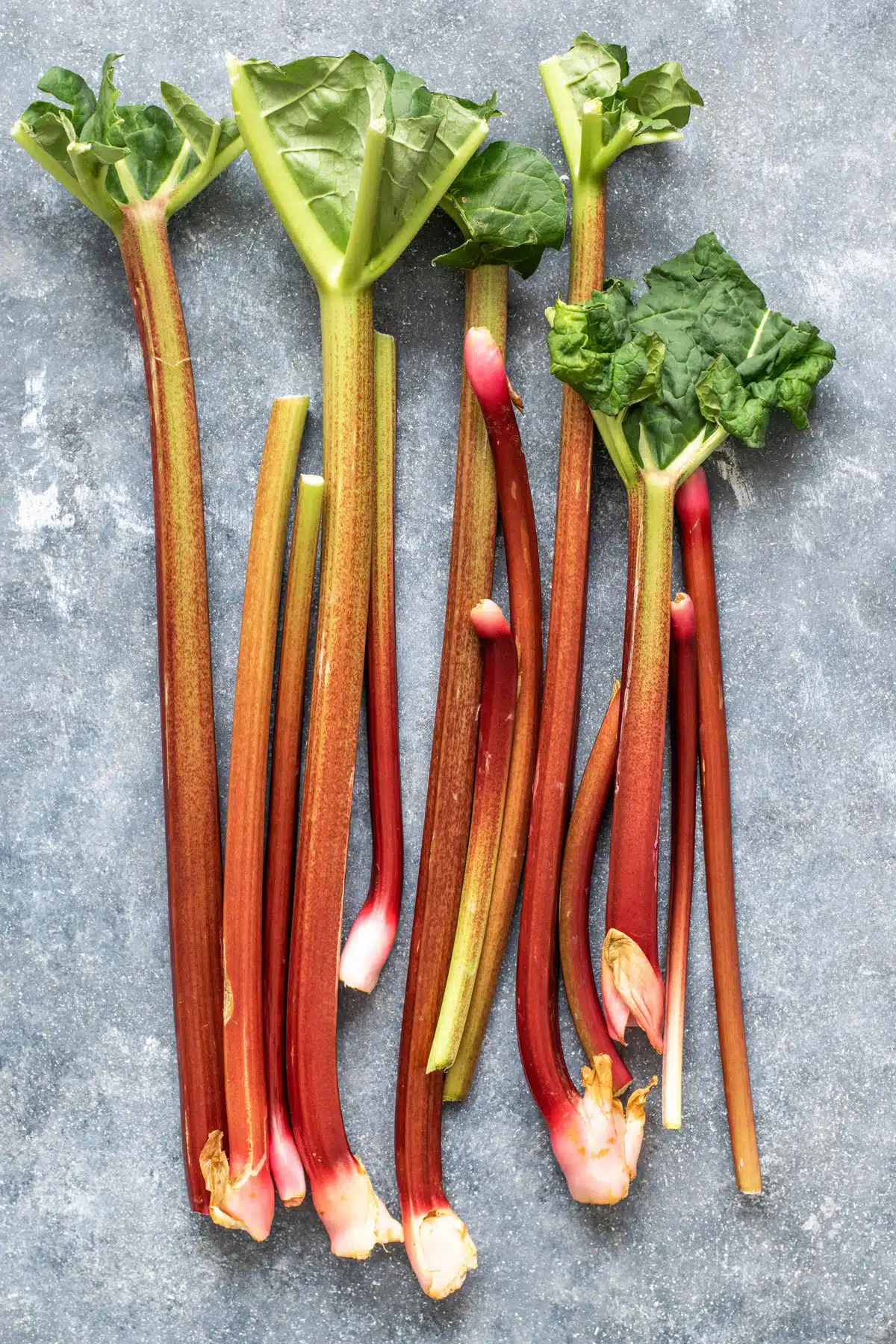
Ingredients for Rhubarb Strawberry Jam
Rhubarb starts to appear in Australia in Spring but is at its best during Summer and also late Autumn. This gives you ample time across the year to track it down.
Four simple ingredients are all you need to make this jam. Five if you’re using the star anise. I’ve used honey as the sweetener in this recipe. If you would prefer to make it with sugar, simply double the amount, as it’s much less sweet than honey.
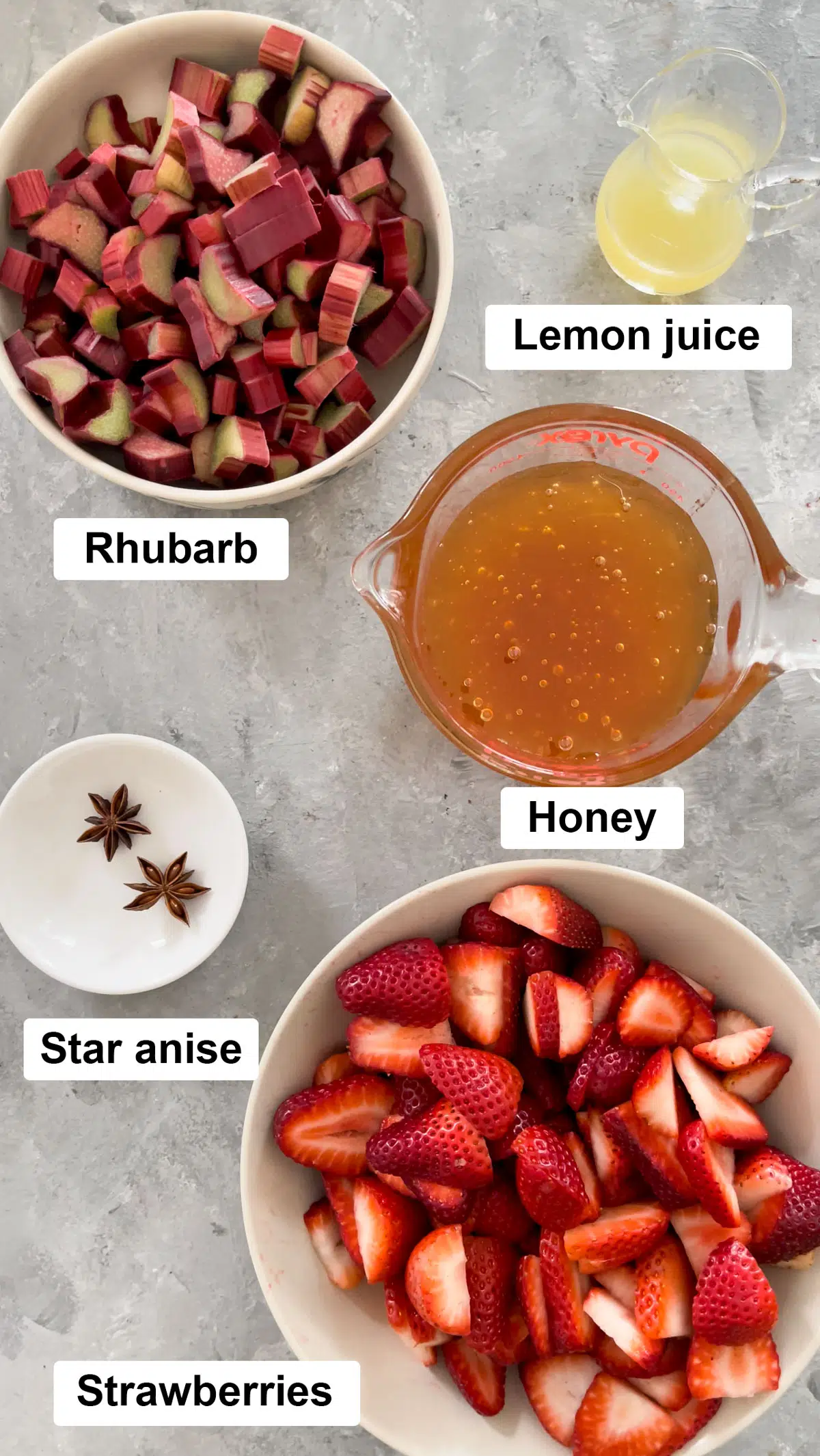
- Rhubarb – A vegetable mostly used as a fruit that doesn’t get enough love. Rhubarb has a face-puckering tartness about it, which is why its best mixed with sweet ingredients.
- Strawberries – This brings sweetness to the recipe and balances the astringency of the rhubarb.
- Honey – A perfect complement to the tartness of the rhubarb and the acidity of the strawberries. The honey brings all these flavours together and helps create a rich and fruity final product.
- Star anise – this is optional, but I highly recommend it. I’ve only used a small amount here, so the flavour is very mild. So mild in fact I’d suggest doubling the amount if you really want the aniseed to be one of the bigger tastes.
- Lemon juice – Contains natural pectin that helps the jam set. It also balances the pH of the jam making it safe for canning.
That’s it! Ready to jam? See the how-to instructions below. There is also information at the end on how to can this jam. This will make it shelf stable if you’d like to use smaller jars or keep the majority out of the fridge.
How To Make This Rhubarb and Strawberry Jam
This is not a difficult recipe, but it does require quite a bit of time on the stove. Save it for a weekend project so you’re not rushed when making it. In total you will get roughly 3 x 250ml / 8oz jars with a little left over for you to sample.
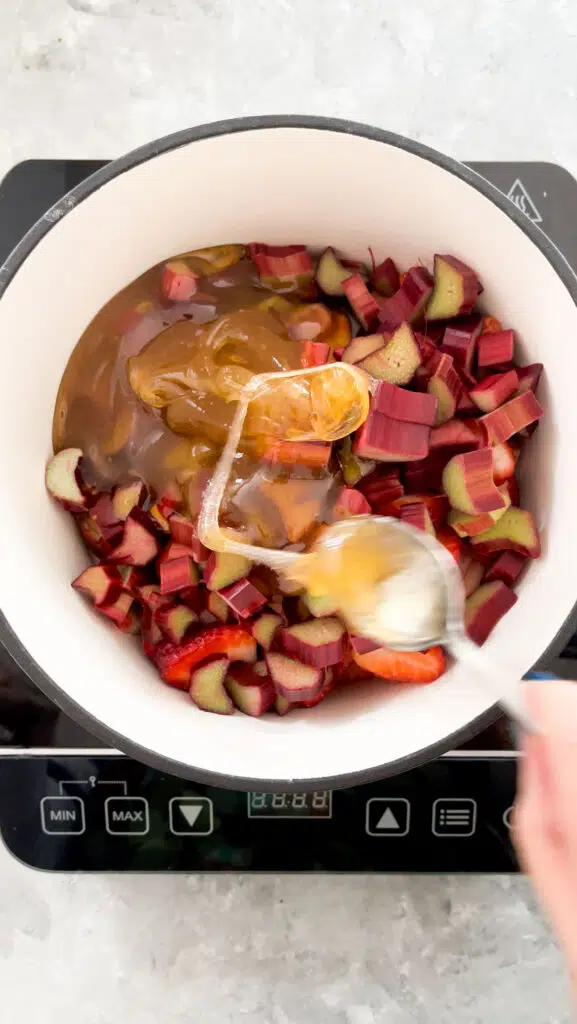
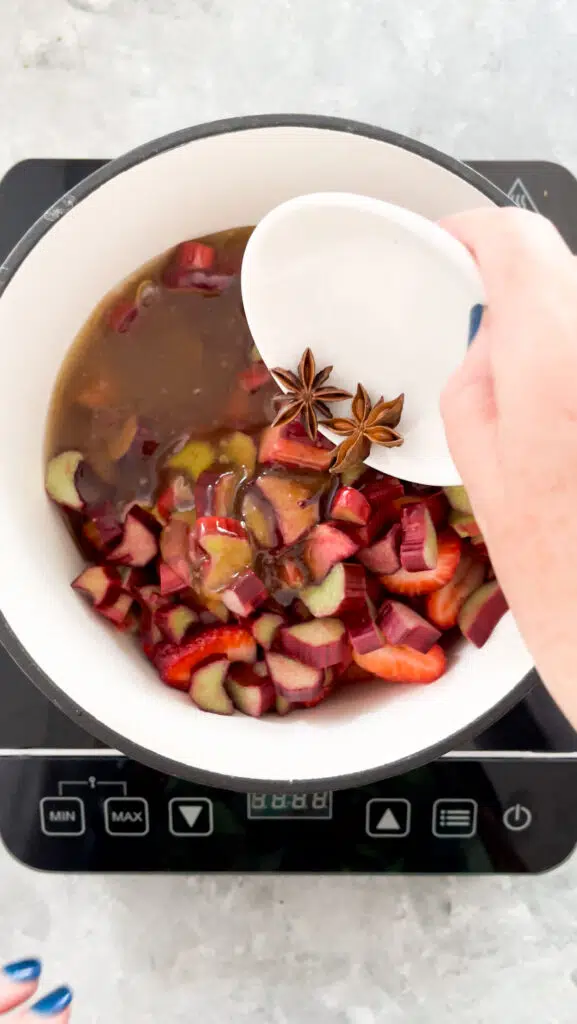
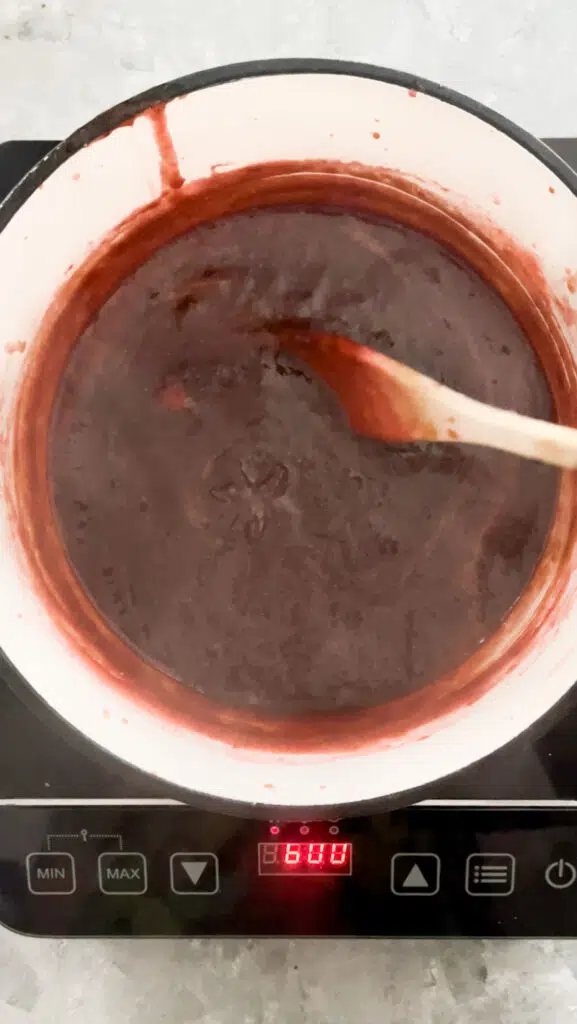
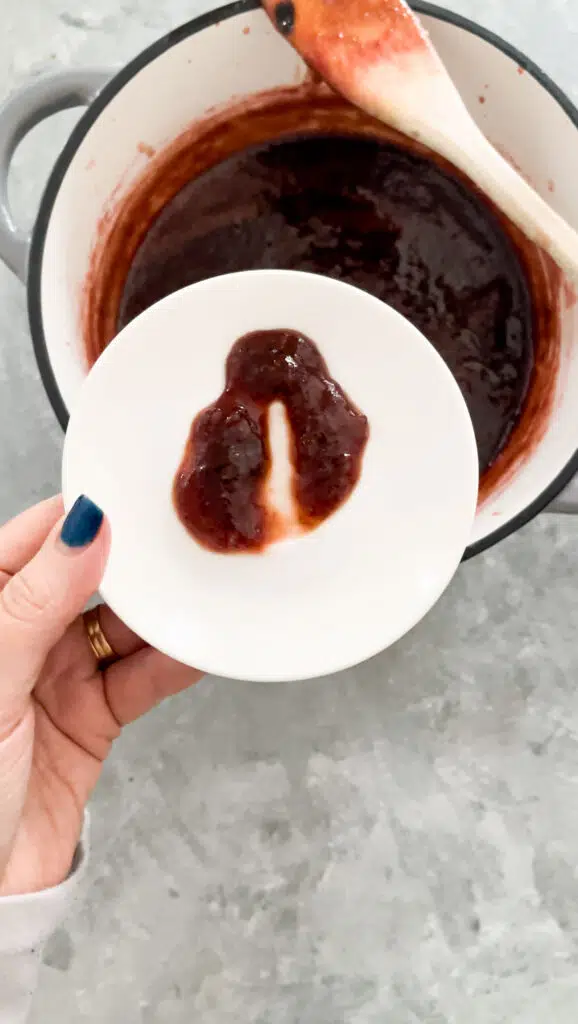
- Cut off the green leafy section of the rhubarb then wash and dry the stems. Chop into roughly 1cm / 0.5-inch slices and place in a large pot. I used a Le Creuset casserole for this.
- Slice off the green stem of the strawberries, wash and dry, then chop them into quarters. Drop these into the pot with the rhubarb.
- Pour in the honey, lemon juice and add in the star anise.
- Turn the stove onto a medium heat and warm the honey so it becomes more liquid. This makes it easier to stir the ingredients together.
- Once the jam comes to a rapid boil, turn the heat to low and let it simmer for 2.5 hours. In the meantime, place a small saucer in the freezer. This will help test the jam is ready.
- To test that the jam has set correctly, take the saucer out of the freezer and drop a teaspoon of jam onto it. Let it sit for a minute then run your finger through the middle. If the jam stays separated, it’s ready. If it rushed back to form a blob it needs to cook a little longer. Keep repeating this test until the jam remains separated on the cold saucer.
- Once ready, the jam will be very hot. To ensure my jars don’t crack I have very warm water sitting in them for about 10 minutes before the jam is done. Tip this out then pour the jam into the spotlessly clean jars, wipe the rims of any excess then seal with a lid. Leave to cool slightly on the bench then store in the fridge and use within a couple of months.
If you would like to make this jam shelf stable see instructions for canning below.
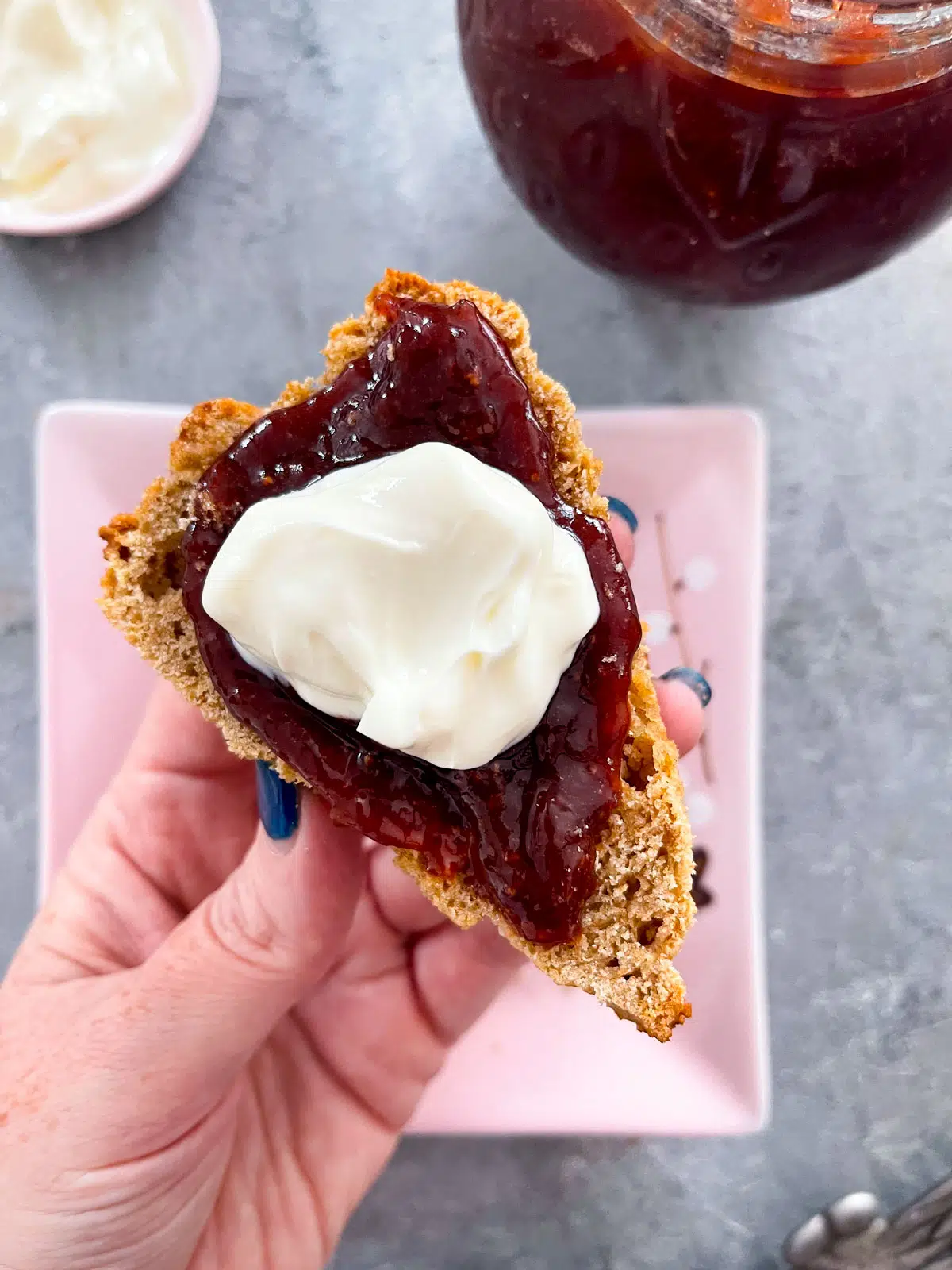
Canning Rhubarb and Strawberry Jam
This jam makes great stocking stuffers at Christmas so you can make a double batch and use it as gifts. To do this you’ll want to can the recipe to make it shelf stable.
It’s important to use proper canning jars if you intend to make this as a preserving recipe. That is jars with separate seals and lids. I recommend Ball Mason or Kilner in an 8oz/roughly 250ml size. Perfect for gift giving!
To can:
- Bring a large pot of water to the boil about half an hour before the jam is ready. Ensure its deep enough to hold both a trivet and cover your jam jars by 2-3cm / 1-inch. The trivet is necessary, as it stops the jars wobbling around while the water simmers. This can result in the lids not sealing.
- Wipe over the tops of the jars again with hot water from the pot to ensure a good seal occurs.
- Run a knife around the edge inside the jar to get rid of any air bubbles.
- Put the lids on the jars and make sure they’re on firmly but not so tight they’re difficult to open.
- For canning, you do want your water bath to boil but not so much the jars will be thrown around. I always have it slightly off a rolling boil so that you can still see bubbles rushing up but they’re not madly splashing about.
- Now lower your jars into the boiling water and process for 10 minutes.
- Once done, carefully remove them with tongs or a jar lifter. Set them on a tea towel on the bench to cool overnight. Hopefully in that time you hear the classic ‘pop’ of the lids as they seal.
- To store, remove the steel ring and leave the jars with just the centre lid on them. If this pops off when the ring is removed, or it didn’t seal the jar must be kept in the fridge.
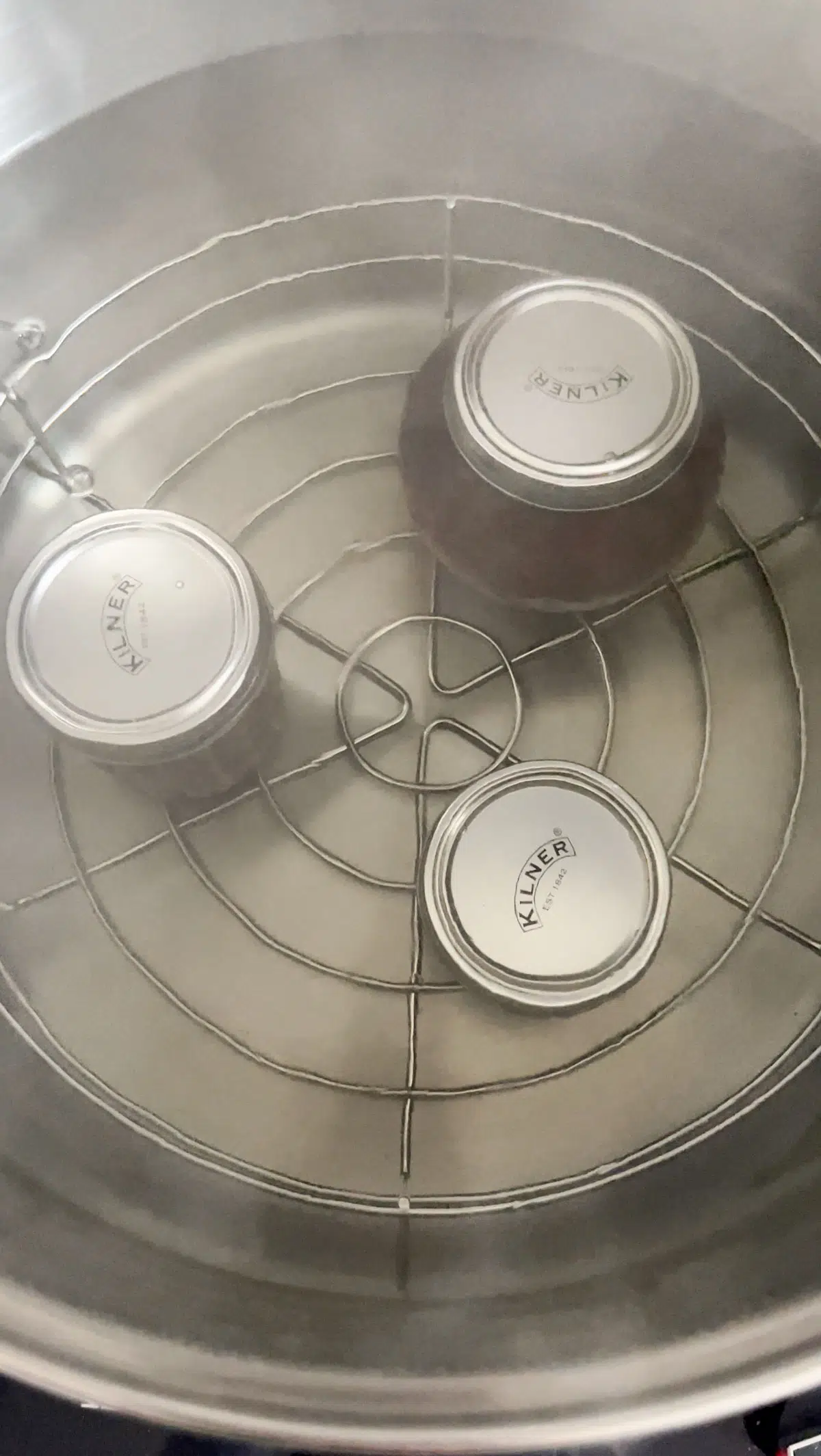
FAQ
This tends to be the result of not reducing it down enough. You can test doneness by dropping a teaspoon of jam onto a saucer that’s been sitting in the freezer. If you can run your finger through the jam and it remains separated, it’s ready. If it comes back together quickly – it needs more cooking time. You can see what I mean in the How To section above.
Rhubarb has a very tart, astringent flavour that many people don’t like. Sweetness from other fruits like berries can help to balance this out making it much more mild.
No! That’s what makes this recipe so simple. Rhubarb becomes quite jammy itself when cooked down, and the addition of the lemon juice means it gels well without the need for pectin.
Watch How To Make This Recipe
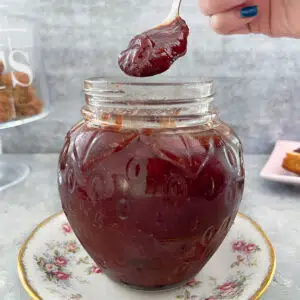
Rhubarb and Strawberry Jam
Equipment
- 1 Large pot
- Canning equipment if canning the jam
Ingredients
- 650 g strawberries (4 cups)
- 350 g rhubarb (3.5 cups)
- 400 ml honey
- 2 Tbsp lemon juice
- 2 Star anise (optional – and add more if you would like quite a strong aniseed flavour)
Instructions
- Cut off the green leafy section of the rhubarb then wash and dry the stems. Chop into roughly 1cm / 0.5-inch slices and place in a large pot. I used a Le Creuset casserole for this.
- Slice off the green stem of the strawberries, wash and dry, then chop them into quarters. Drop these into the pot with the rhubarb.
- Pour in the honey, lemon juice and add in the star anise.
- Turn the stove onto a medium heat and warm the honey so it becomes more liquid. This makes it easier to stir the ingredients together.
- Once the jam comes to a rapid boil, turn the heat to low and let it simmer for 2.5 hours. In the meantime, place a small saucer in the freezer. This will help test the jam is ready.
- To test the jam has set correctly, take the saucer out of the freezer and drop a teaspoon of jam onto it. Let it sit for a minute then run your finger through the middle. If the jam stays separated, it's ready. If it rushed back to form a blob it needs to cook a little longer. Keep repeating this test until the jam remains separated on the cold saucer.
- Once ready, the jam will be very hot. To ensure my jars don't crack I have very warm water sitting in them for about 10 minutes before the jam is done. Tip this out then pour the jam into the spotlessly clean jars, wipe the rims of any excess then seal with a lid. Leave to cool slightly on the bench then store in the fridge and use within a couple of months.
Notes
Nutrition
Pin This Recipe For Later
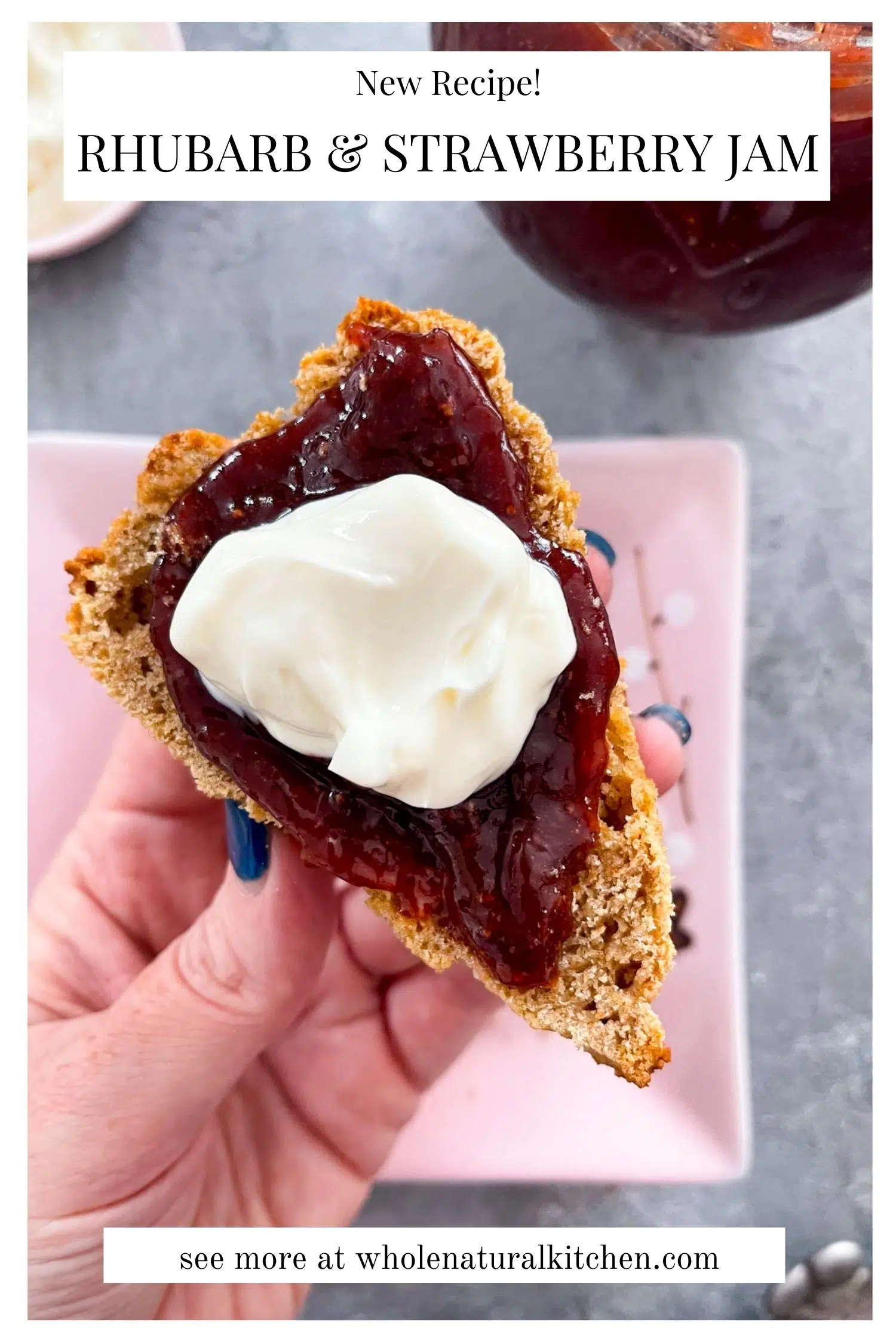
Want More Preserving Recipe Ideas? Take A Look At These!
NEVER MISS A THING!
Follow me on Facebook, Instagram, and Pinterest to keep up to date with all my latest recipes, hints, and tips.
